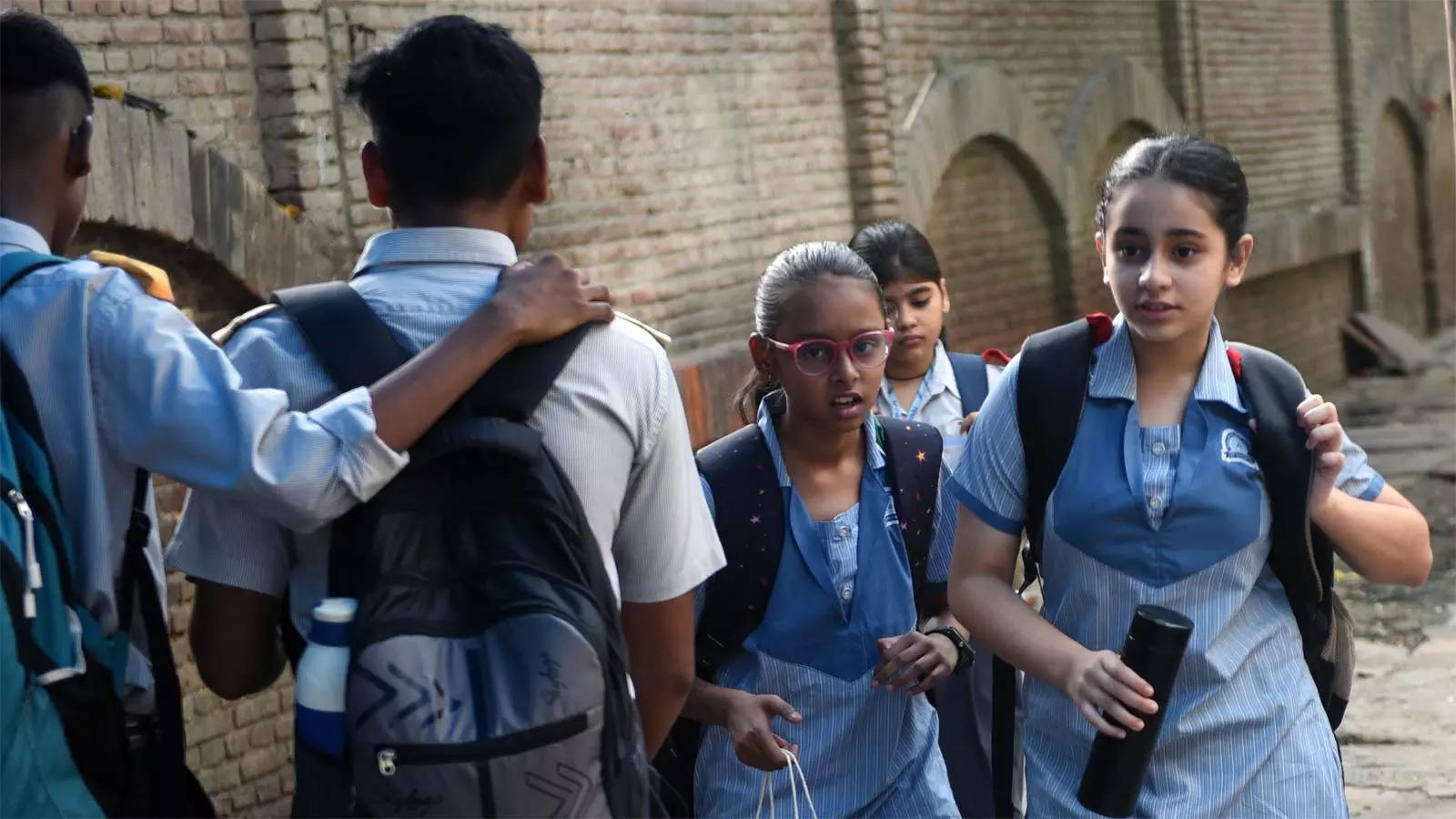The National Curriculum Framework (NCF) for School Education 2023 has marked a notable departure from its initial draft proposals released for public input in April this year. Released by the Centre on Wednesday, the NCF now mandates the instruction of three languages during classes 9-10, encompassing two Indian languages, and two languages during classes 11-12, with one being an Indian language.
Aligned with the National Education Policy (NEP) 2020, the NCF underscores the significance of learning three languages, aiming to cultivate multilingualism and appreciation for India’s diverse linguistic tapestry. The three languages in focus are as follows:
R1: The language employed as the medium of instruction (MoI) and for initial literacy attainment. Ideally, it should be the language most familiar to students, often their mother tongue or home language.
R2: This encompasses any other language, including English.
R3: Any language apart from R1 or R2.
The decision regarding R1, R2, and R3 rests with the state or relevant authorities.
The NCF, underpinned by the vision of NEP 2020, facilitates education for ages 3 to 18 across the diverse spectrum of educational institutions in India. Encompassing the four Stages of the 5+3+3+4 Curricular and Pedagogical restructuring in NEP 2020, it recognizes language as more than just a cognitive tool, emphasizing its role in communication, aesthetic expression, and critical thinking.
The NCF advocates learning three languages – R1, R2, and R3 – during school years. R1, typically the regional language, fosters a deeper connection to culture and identity. The goal is for students to attain independent reading and writing proficiency in R1 by age 8 (Grade 3), similar literacy in R2 by age 11 (Grade 6), and in R3 by age 14 (Grade 9). The curriculum strives for academic linguistic proficiency in all three languages by age 15 (Grade 10), with at least two being native Indian languages.
The curriculum’s intent is to establish a sense of pride, belonging, and rootedness in cultural heritage through language education. By offering at least one Indian language as an instruction medium until Grade 12 and providing options for language choices, the NCF promotes multilingualism, cultural awareness, and international engagement.
The benefits of learning three languages encompass enhanced cognitive skills, heightened cultural sensitivity, better job prospects, improved communication abilities, and expanded travel and study opportunities. The NCF 2023’s emphasis on tri-lingual education marks a substantial stride toward nurturing multilingualism, equipping students for a globalized world and enriching India’s linguistic landscape.
Aligned with the National Education Policy (NEP) 2020, the NCF underscores the significance of learning three languages, aiming to cultivate multilingualism and appreciation for India’s diverse linguistic tapestry. The three languages in focus are as follows:
R1: The language employed as the medium of instruction (MoI) and for initial literacy attainment. Ideally, it should be the language most familiar to students, often their mother tongue or home language.
R2: This encompasses any other language, including English.
R3: Any language apart from R1 or R2.
The decision regarding R1, R2, and R3 rests with the state or relevant authorities.
The NCF, underpinned by the vision of NEP 2020, facilitates education for ages 3 to 18 across the diverse spectrum of educational institutions in India. Encompassing the four Stages of the 5+3+3+4 Curricular and Pedagogical restructuring in NEP 2020, it recognizes language as more than just a cognitive tool, emphasizing its role in communication, aesthetic expression, and critical thinking.
The NCF advocates learning three languages – R1, R2, and R3 – during school years. R1, typically the regional language, fosters a deeper connection to culture and identity. The goal is for students to attain independent reading and writing proficiency in R1 by age 8 (Grade 3), similar literacy in R2 by age 11 (Grade 6), and in R3 by age 14 (Grade 9). The curriculum strives for academic linguistic proficiency in all three languages by age 15 (Grade 10), with at least two being native Indian languages.
The curriculum’s intent is to establish a sense of pride, belonging, and rootedness in cultural heritage through language education. By offering at least one Indian language as an instruction medium until Grade 12 and providing options for language choices, the NCF promotes multilingualism, cultural awareness, and international engagement.
The benefits of learning three languages encompass enhanced cognitive skills, heightened cultural sensitivity, better job prospects, improved communication abilities, and expanded travel and study opportunities. The NCF 2023’s emphasis on tri-lingual education marks a substantial stride toward nurturing multilingualism, equipping students for a globalized world and enriching India’s linguistic landscape.
Denial of responsibility! Chronicles Live is an automatic aggregator of the all world’s media. In each content, the hyperlink to the primary source is specified. All trademarks belong to their rightful owners, all materials to their authors. If you are the owner of the content and do not want us to publish your materials, please contact us by email – chronicleslive.com. The content will be deleted within 24 hours.


